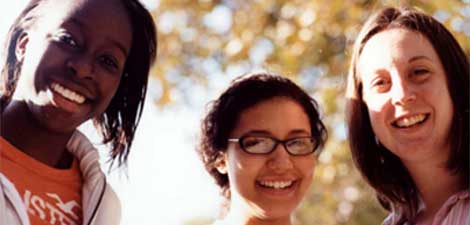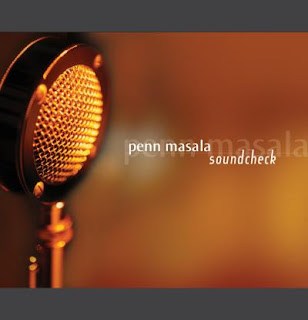The McBride program at Bryn Mawr College gives women a chance to go to a school later in life.
By Juliana Reyes
Four women sit around a table and there’s a language barrier. Yvette Tucker, a black woman with short braids, manicured nails and silver butterfly earrings speaks broken French. Elisa Landaverde, a young, stylish girl from Mexico speaks Japanese. Georgette Hedberg, 63, speaks a little Polish. Marie Steeb, blond and pretty, speaks German and sounds like a native. They all concentrate when Tucker poses a question.
“Qu’est-ce que tu fais ce soir?” she says. Her French accent is getting there.
The women pause and look around. Then Hedberg breaks the silence.
“I think it sounds like, ‘You’re ugly.'” The women all burst out laughing.
Though they may seem completely different, these women are intimately connected. They are McBride scholars at Bryn Mawr College.
The McBride program, named after Katharine McBride, the fourth president of Bryn Mawr, began in 1985. It allows women who are beyond traditional college age to study at Bryn Mawr in order to receive their undergraduate degree. Though they range in age from 24 to 77, they are similar to the other Bryn Mawr students in many ways.
They are expected to fulfill the same requirements, they are eligible for financial aid and they have the opportunity to live on campus if they wish. One main difference is that McBrides do not have to attend Bryn Mawr full time. This is called “self-pace” and it allows them to choose how many classes they take each semester. Because of self-pace, McBrides sometimes stay for longer than the normal four years.
Rona Pietrzak, Associate Dean and Director of the McBride Scholars Program, says that some McBrides leave Bryn Mawr for a couple of years for different reasons, such as family problems, but they almost always come back.
The McBride application process is unique because as Pietrzak says, “We have their whole lives to look at.” Pietrzak explains that the application involves three letters of recommendation, four “fairly substantial” autobiographical essays and no SAT scores. McBride Scholar Joanne Bunch calls the application process “the most daunting thing about being a McBride.” She says she was going to apply to Smith College as well, but when she saw that Smith required one essay as opposed to Bryn Mawr’s four, she thought, “You can fake one essay, but you can’t fake four.” She thought of it as Bryn Mawr’s way of weeding out the weaker candidates. Continue reading




